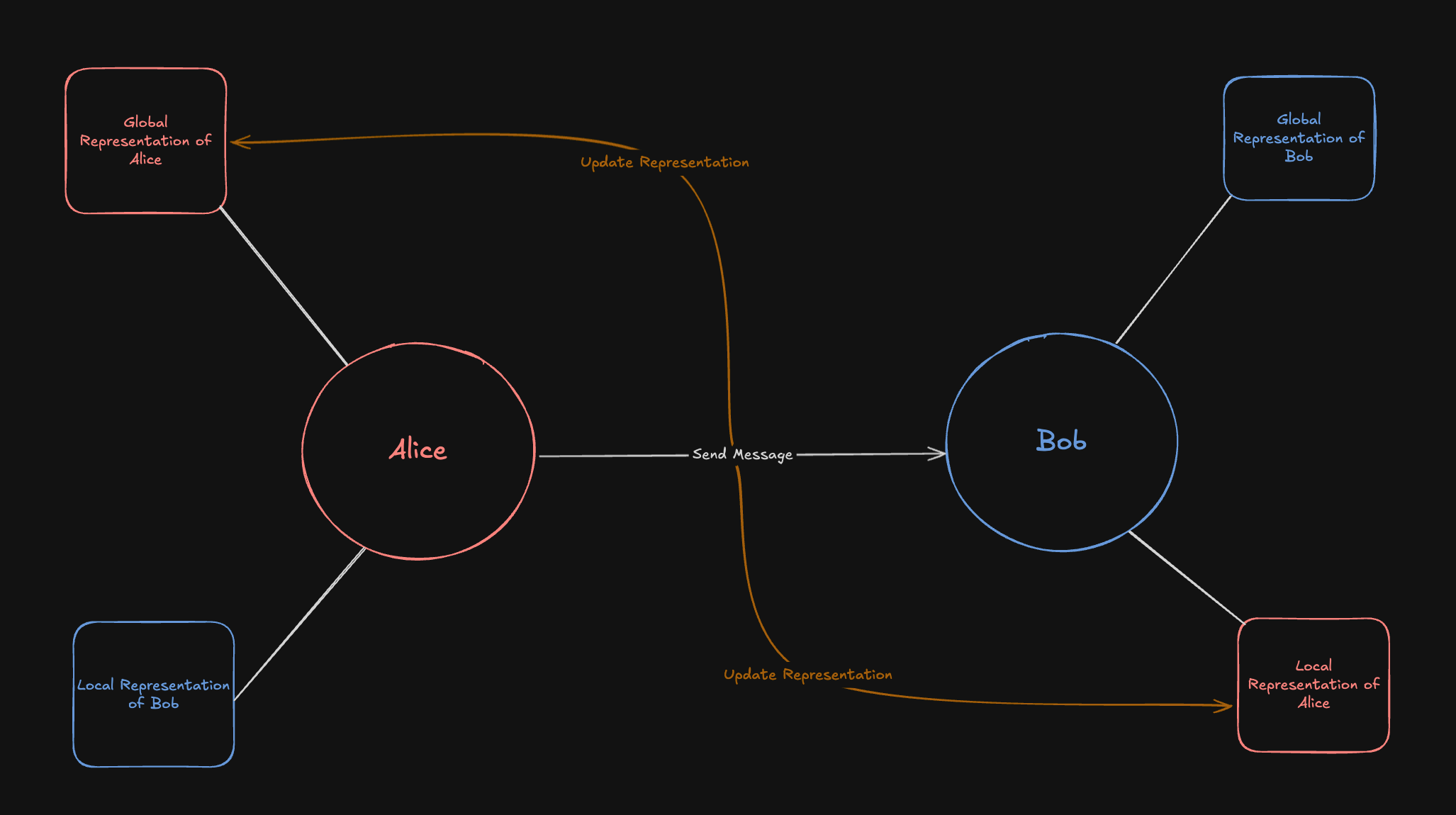One of the unique affordances of Honcho is that it allows developers to model
directional relationships between Peers. What I mean by this is you can model
how one Peer thinks about another Peer.
There are many use cases where you don’t want every agent or human to know
everything about another user such as games or multi-agent workflows. To
illustrate this, the following examples shows 2 conversations.
Conversation #1 (With Bob and Alice)
Alice: I had a great breakfast today.
Bob: What did you eat?
Alice: I had pancakes and eggs and bacon
Alice: I actually didn't eat any breakfast today.
Charlie: Oh that's too bad.
Alice: But I lied to Bob and told him I did, so back me up if you see them.
Peers and let them
use Honcho to get insights on each other then Bob would immediately know this
deception. For example:
# Bob could run
alice.chat("What did Alice eat today?")
# Response: Alice did not eat anything today
Peer are scoped globally. This means every
message sent by that Peer in any conversation updates the same representation
of that Peer. However, we can enable Local Representations so Bob can
form a representation Alice based only on what they observe Alice do.
This feature is illustrated in the graphic below:
 We can enable local representation for a
We can enable local representation for a Peer by setting observe_others=True.
This is shown in the Configure
Reasoning page.
Now if we used Bob’s local representation of Alice then Bob would only get
insights on what they’ve seen Alice say to them.
bob.chat(target="alice", query="What did Alice eat today?")
# Response: Alice ate pancakes, eggs, and bacon
Local Representations are turned off by default
